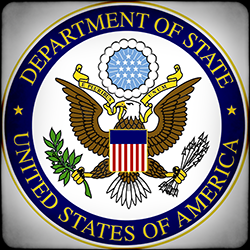
In January 2017, just one week into his first term, President Trump issued an executive order directing the Departments of State and Homeland Security to crack down on "recalcitrant countries". These are countries that refuse to accept the repatriation of their citizens — many of whom committed crimes in the United States. Such aliens, including criminals, must be released into the U.S. if "there is no significant likelihood of removal in the reasonably foreseeable future", according to the Supreme Court in the 2001 case of Zadvydas v. Davis.
At the time of the president's 2017 executive order, DHS's Immigration and Customs Enforcement (ICE) designated 20 countries as recalcitrant. Since then, that number has fallen to nine, as the Trump administration has used sanctions pursuant to section 243(d) of the Immigration and Nationality Act, which allows for the discontinuance of granting visas to nationals of a country refusing to accept its aliens.
Those remaining nine countries are: Cuba, Eritrea, Iran, China (PRC), Hong Kong, Burma, Cambodia, Vietnam, and Laos.
In July 2018, DHS and State announced sanctions on Burma and Laos, two countries whose recalcitrance was leading to the release of violent criminals into the United States. Specifically, B1 and B2 visas for government officials and their families were discontinued for both countries, and the State Department also blocked A3 and G5 visas to individuals employed by the Laotian government. While these sanctions are undoubtedly a good step, they may not be enough. Last fiscal year, Laos took back just eight of its citizens, barely up from five the year before, according to the annual report from ICE's Enforcement and Removal Operations (ERO) component. That compares to 85 Laotians who were given final orders of removal that same year.
Beyond Laos and Burma, there are even bigger fish to fry. By far the largest of the recalcitrant countries is China. Already in FY 2019, there are 994 Chinese nationals with final orders of removal. Last year, over 2,000 were given final removal orders according to TRAC data. That makes China the fifth most likely country of origin for aliens ordered removed, and the most likely in Asia. China trails only Mexico and the Northern Triangle countries (Guatemala, Honduras, and El Salvador).
What further steps can be taken? For the smaller and medium-sized countries, cutting aid could have a serious impact. In FY 2017, the United States sent $53 million to Laos, $148 million to Burma, and $150 million to Vietnam. Why do we continue to send such large amounts of money to countries that refuse to take back their criminals, making America's cities less safe? The large majority of countries around the world comply with U.S. orders of removal, including Latin American countries which have far more of their citizens removed, so there is no reason these recalcitrant countries can't do the same.
Additionally, section 243(d) of the INA states that the secretary of State can order consular officers to discontinue a wide range of visas to recalcitrant countries — immigrant or nonimmigrant; to citizens, subjects, nationals, and/or residents of that country. If these countries continue to fail to comply, the government is well within its rights to restrict visas to a much wider pool of citizens, even beyond government officials, putting additional pressure on those nations. China, for example, uses huge numbers of student visas — there were over 363,000 Chinese students enrolled in U.S. schools in the 2017-2018 school year. The American university system is a massive asset for the Chinese, because many Chinese students study here and then return home with their newly acquired skills. Even the possibility of that opportunity being cut off might well be sufficient to convince the Chinese government to cease its recalcitrance.
President Trump promised to get tough on countries who refuse to accept their citizens ordered removed, and the declining number of recalcitrant countries shows that he has largely been successful. However, the State Department and DHS have a range of additional tools at their disposal, and they should certainly consider using them.
